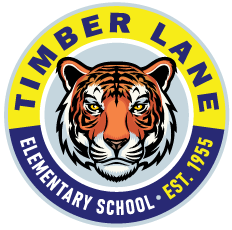5th Grade Newsletter
Important Dates & Reminders
-
April 4 - 8: Spring Break / No School
-
May 30: Memorial Day / No School
Language Arts
What We Learned This Past Month:
- Readers respond to poetry through performance, art, and writing in order to express their thoughts about a poem.
- Through multiple readings, readers analyze the effects of poetic devices in a variety of poetic forms (rap, musicals, lyrics, novels written in verse).
- Writers deliberately choose poetic tools to reveal images, evoke feelings, and produce sound.
What We Will Be Learning Next Month:
- Journalists read and explore news reports.
- Journalists explore sections of the newspaper to notice the kinds of stories each section covers.
- They get ideas about which section or “beat” they want to cover.
- Journalists determine which events or issues are newsworthy in their school or community.
- Journalists study the techniques of mentors as they prepare to interview. (Inquiry)
- Journalists decide who they will interview and develop questions they will ask.
Math
What We Learned This Past Month:
- Mathematicians identify, describe, create, express, and extend number patterns found in objects, pictures, numbers, and tables.
- Mathematicians investigate and describe the concept of variables.
- Mathematicians write an equation to represent a given mathematical relationship, using a variable.
- Mathematicians use an expression with a variable to represent a given verbal expression involving one operation.
- Mathematicians create a problem situation based on a given equation, using a single variable and one operation.
- Mathematicians solve practical problems that involve perimeter, area, and volume in standard units of measure.
- Mathematicians identify equivalent measurements within the metric system.
- Mathematicians solve practical problems involving length, mass, and liquid volume using metric units.
- Mathematicians solve practical problems related to elapsed time in hours and minutes within a 24-hour period.
What We Will Be Learning Next Month:
- Mathematicians identify and describe the diameter, radius, chord, and circumference of a circle.
- Mathematicians classify and measure right, acute, obtuse, and straight angles.
- Mathematicians classify triangles as right, acute, or obtuse and equilateral, scalene, or isosceles.
- Mathematicians investigate the sum of the interior angles in a triangle and determine an unknown angle measure.
- Mathematicians recognize and apply transformations, such as translation, reflection, and rotation.
- Mathematicians investigate and describe the results of combining and subdividing polygons.
Science
What We Learned This Past Month:
- Scientists demonstrate an understanding of scientific reasoning, logic, and the nature of science by planning and conducting investigations.
- Scientists Investigate and understand how sound is created and transmitted, and how it is used.
- Scientists investigate and understand basic characteristics of visible light and how it behaves.
- Scientists investigate and understand that matter is anything that has mass, takes up space, and occurs as a solid, liquid , or gas.
What We Will Be Learning Next Month:
- Scientists demonstrate an understanding of scientific reasoning, logic, and the nature of science by planning and conducting investigations.
- Scientists Investigate and understand that organisms are made of one or more cells and have distinguishing characteristics that play a vital role in the organism’s ability to survive and thrive in its environment.
